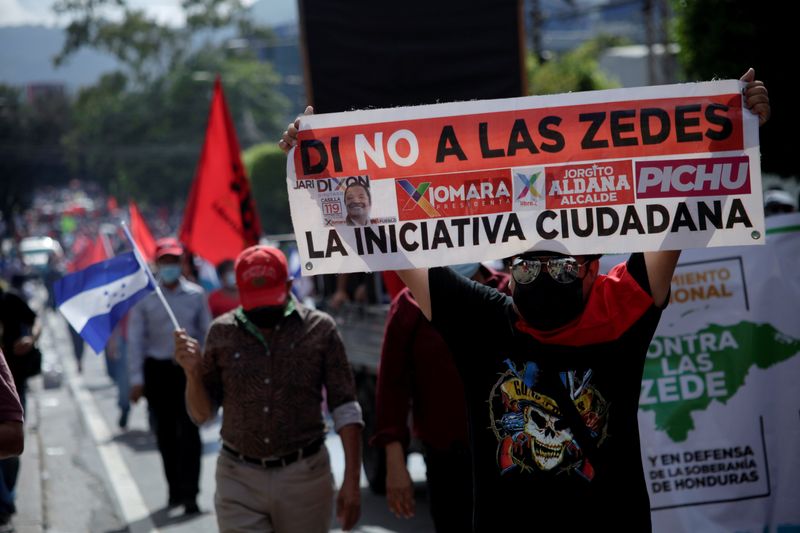TEGUCIGALPA (Reuters) – Honduras’ Congress unanimously repealed a law overnight which allowed for the creation of special economic zones exempt from some national laws and taxes throughout the country, known as Zones for Employment and Economic Development (ZEDEs).
Legislators in the unicameral Congress said the law violated the Central American country’s constitution and its sovereignty.
The so-called ZEDE law was passed in 2013, but was vigorously promoted during the administration of former President Juan Orlando Hernandez from 2014 to 2022 to encourage international investment and employment in Honduras, where more than 60% of the population lives in poverty.
Hernandez was extradited to the United States Thursday on drug trafficking and arms possession charges.
The legislation was repealed at the behest of leftist President Xiomara Castro, who took office in January. During her campaign, Castro had promised to push for the law’s repeal.
The chamber also passed a constitutional reform, which must be ratified next year, abolishing existing ZEDEs.
“Those ZEDEs were supported by a legal system that was invalid from the start, unconstitutional, and what we have done is return to Honduras its sovereignty and value to the constitution,” said Congressional President Luis Redondo on the country’s congressional news channel.
The legislation gave the special economic zones administrative, fiscal, monetary and budgetary autonomy, as well as independent judicial bodies.
“Thank you! (Congressional) President Luis Redondo, Fernando Garcia, and congress members; for repealing the criminal #ZEDE and defeating those who tried to steal our sovereignty. This fulfilled promise is another step towards the Refoundation,” said Castro in a message on her Twitter account.
Reuters attempted to contact two companies that operate ZEDEs in Honduras but they were not immediately available for comment.
(Reporting by Gustavo Palencia, Writing by Kylie Madry; Editing by Christian Schmollinger)



















